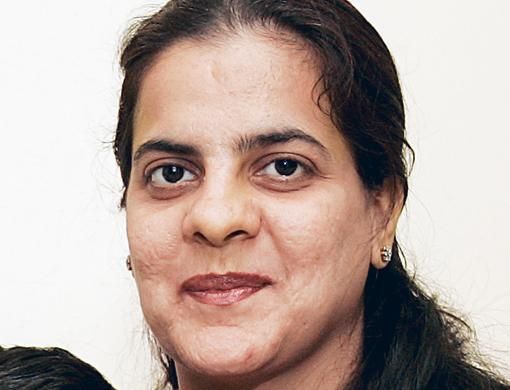It may be hard to believe but there are those amongst us who survive without a single loan. Not for them the hassle of repayments and escalating interest rates.
They lead a safe and budgeted existence. Gulf News Community Journalist Huda Tabrez speaks to four expatriates who have made life without loans a mission.
Marie-Ann Christy
For a 21-year-old just starting out in life, Marie-Ann Christy has made quite a resolution — she has decided never to take a loan.
Fresh into her new job, this Indian expatriate has firmly laid down rules for controlling her spending habits. She attributes this self-discipline to her mother.
"I always saw my mother sitting down with a calculator at the end of every month, checking her expenditure and savings," she said.
"I realised the importance of living within a budget," she said.
"Today, I clearly calculate the major expenses I will incur at the start of the month so that I don't overspend on luxuries," she said.
A self-confessed victim of ‘mathophobia', Marie-Ann also feels that calculating interest rates or worrying about late-payment calls also kept her off the temptation of the easy money on offer.
"Our mother always asked us to save a dirham every day. It wasn't very difficult, and gradually we would have quite a lot of money at the end of the year," she said.
But life in a world of spiralling prices can never be easy.
"Because everyone in my family is busy with their life, we tend to buy food in bulk and usually cook for more than a day," she said.
"Frozen foods may not be very healthy, but it is the most convenient and cost-effective option."
So, living a life without loans is a choice Marie-Ann has made, even if it means fewer luxuries.
Elaine Fernandes
A good boss can sometimes get you more than a nice salary. If you are as lucky as Elaine Fernandes, it may just help you be debt-free.
The 47-year-old Indian expatriate owes her impressive record of staying away from loans to her boss's 10 per cent scheme.
"While working for a women's development forum in Bangalore, I always noticed my boss cutting our salaries every month," she said.
"She never explained this policy, but after five years of working with the forum, she called us to the office one day and handed us Rs15,000 (Dh1,300) as part of our ‘savings'. We could not believe our salary of Rs3000 (Dh260) a month could fetch us such an impressive saving."
And she has since then been saving at least 10 per cent of her salary every month. When asked about how she manages to live without bank loans, Elaine has a simple question: "Why would I want to pay monthly instalments, when I can save the same amount of money and buy something later?"
And her question seems valid, considering she has now purchased a flat in India with her monthly savings.
"It was a very special moment for me when I purchased the flat," she said.
"I wanted to prove that as a simple working woman, I could be independent and live my life within my means."
Nikita Padam
Living without a bank loan can be difficult, more so if you work in the liabilities section of a leading multi-national bank.
As part of her job, 31-year-old Indian expatriate Nikita Padam has helped many residents in the UAE get a loan. "I wouldn't want to take a loan for something I can't afford," she said.
Nikita has learned the importance of spending wisely because of the nature of her job.
"Quite often people take loans to close a credit card, or to cover the expenses of other loans," she said.
"I don't think a loan will help you much in such circumstances, as it is simply forcing you towards more liabilities."
Instead, Nikita has adopted a more simplified approach towards life.
"If I need something urgently, I will definitely spend on it. But, if it is simply a luxury, I will get it only if I can afford it," she said.
Nikita also advocates a wise approach towards other expenses like credit cards.
"I don't like to have any dues left on my credit card. Since I pay the amount as soon as I can, it actually functions like a debit card for me," she said.
However, it has cost her many luxuries.
"I have not bought a car, yet. But that is not a major problem," she said. "I walk to work as I live near by and whenever I need to go for shopping or socialising, I take a taxi or bus. It is a simpler life."
Jeannie Tabor
Thinking first has helped Jeannie Tabor lead a loan-free life.
"It's really a matter of self-discipline. If I don't have the money, it is not critical for me to buy a new mobile or laptop. I can wait and buy it later," the 31-year-old Filipina said.
Loans have never been a choice for Jeannie as she thinks the trick lies in getting a lot of money immediately but ultimately paying more later. But how does she manage to make ends meet in today's life of rising prices?
"I get my basic requirements as part of my salary package. So, thankfully, the inflation has not been a major problem," she said.
However, she has had to curtail her lifestyle to make sure she does not incur any unnecessary expenses like interest on late-payment of credit card dues.
"Mostly, I spend money when I am socialising with friends," she said. But fortunately, I have friends who are also wise with their money." And it is with her friends that Jeannie has learnt the simple rule of thinking first.
"If it is not an emergency, people should stay away from taking loans," she said.
"Quite often, people take loans out of compulsion, as they have to maintain a specific lifestyle. That is not a good idea."
So, instead of raising her budget to match an unrealistic lifestyle, Jeannie has found good company in friends who help her stay debt-free.
Best practices
- Before taking a loan, work out your budget and be disciplined.
- Try not to be tempted by a better lifestyle and live within your means.
- If you are in debt, talk to your bank and share your situation. The sooner such a difficulty is faced, the better.
- Work out a programme for repaying your debt.
- Pay back high-interest loans first, such as credit cards and then move on to low-interest loans, such as payment on cars.
Information on loans in the UAE:
- Personal loans in UAE surged almost 40 per cent in 2007 and have almost doubled in the last four years.
- High consumer spending boosted personal loans to Dh48.4 billion during the first quarter of 2008. It rose 11 per cent in three months, up from Dh43.5 billion at the end of 2007.
- Under the existing rules, UAE nationals and expatriates can obtain a personal loan of up to Dh250,000 while UAE nationals can avail themselves of loans up to Dh2 million if they own a business.
- According to data from the UAE Central Bank, consumer loans have soared more than 55 per cent since the end of 2006.
- Loans to individuals rose to Dh49 billion at the end of March 2007, compared with Dh31 billion in December 2006.
- Consumer loans have soared more than 73 per cent since the end of 2006 and almost doubled during the past four years.
- As of September 1, 2008, consumer loans in the UAE surged 46 per cent during the past 12 months.















